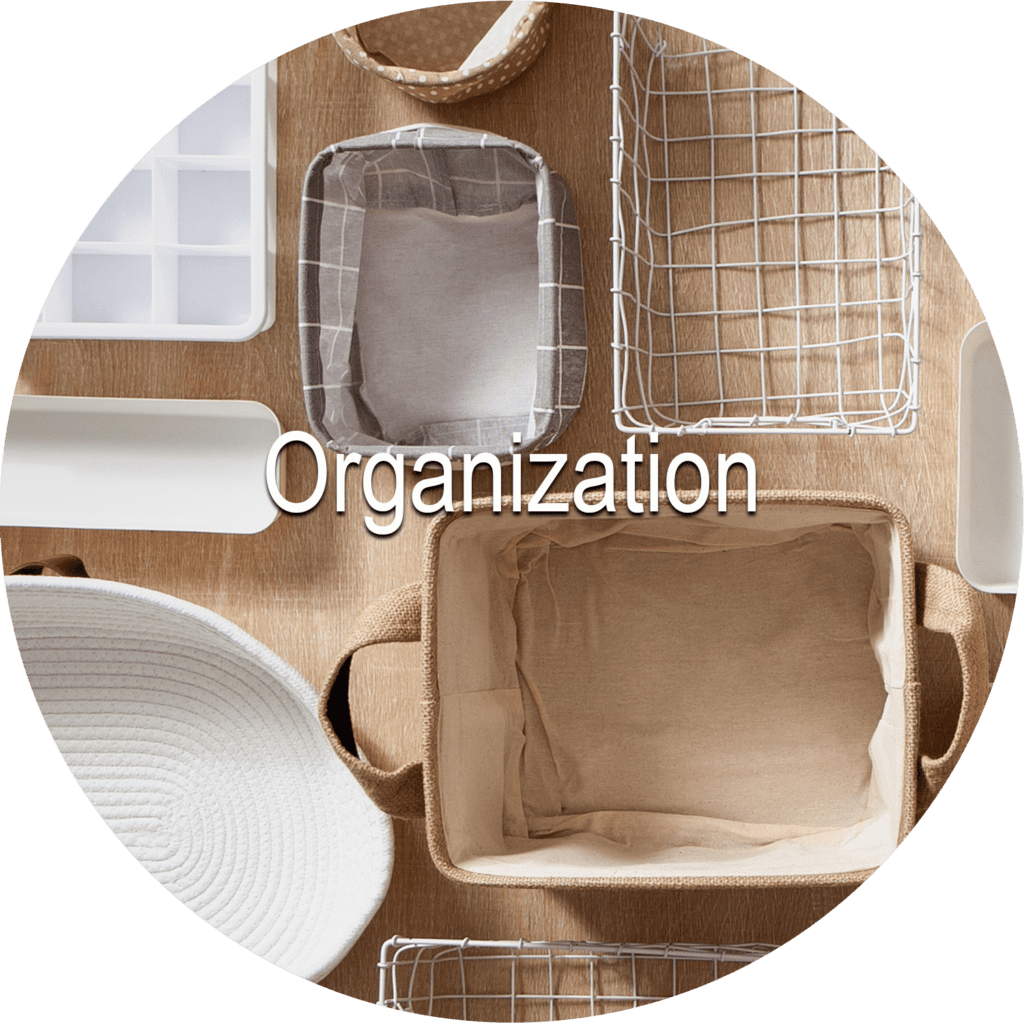What is organization?
Organization can be divided into two main areas:
1. Physical Organization: This involves the arrangement of tangible items in our environment. Key steps include:
- Sorting: This is the process of categorizing items based on their type, use, or any other characteristic that helps in distinguishing them. For example, in a workspace, you might sort items into categories like books, stationery, electronics, etc.
- Finding a Place for Everything: Once items are sorted, the next step is to assign a specific place for each category or item. This ensures that every item has a ‘home’, making it easy to locate when needed.
- Maintaining Order: After assigning places for items, it’s important to maintain this order. This involves returning items to their designated places after use and regularly tidying up to keep the space organized.
2. Mental Organization: This involves the organization of thoughts, ideas, tasks, and responsibilities in our minds. It’s about structuring our mental processes in a way that allows us to effectively manage our tasks, make decisions, solve problems, and generate ideas.
Both physical and mental organization aim to enhance our efficiency. By keeping our items and thoughts well-organized, we can access what we need more quickly and easily, reducing wasted time and effort. This leads to increased productivity, reduced stress, and a more pleasant and manageable environment and mindset.
How does planning impact success?
Organization, both physical and mental, significantly impacts success in various ways. Here’s how:
- Improves Efficiency: Organization helps you find what you need quickly, whether it’s a physical item or a piece of information. This saves time and effort, making you more efficient.
- Reduces Stress: An organized environment or mind is less chaotic and stressful. Knowing where things are and having a clear plan reduces anxiety and makes tasks seem more manageable.
- Boosts Productivity: When you’re not wasting time searching for items or information, you can get more done. Organization helps you focus on the task at hand, boosting your productivity.
- Enhances Decision-Making: An organized mind can process information more effectively, leading to better decision-making. It allows you to clearly see your options and make informed choices.
- Facilitates Goal Achievement: Organization helps you plan and track your progress towards your goals. By breaking down your goals into manageable tasks and scheduling them, you’re more likely to achieve them.
- Promotes Professionalism: In a professional setting, being organized can make you appear more competent and reliable, which can lead to better job opportunities and career advancement.




